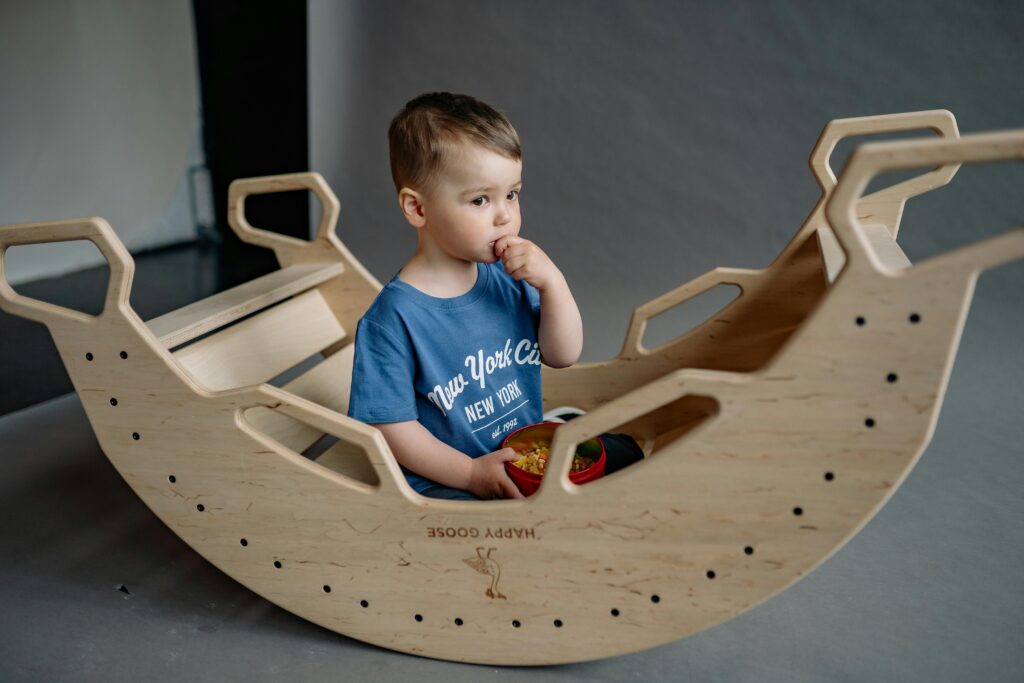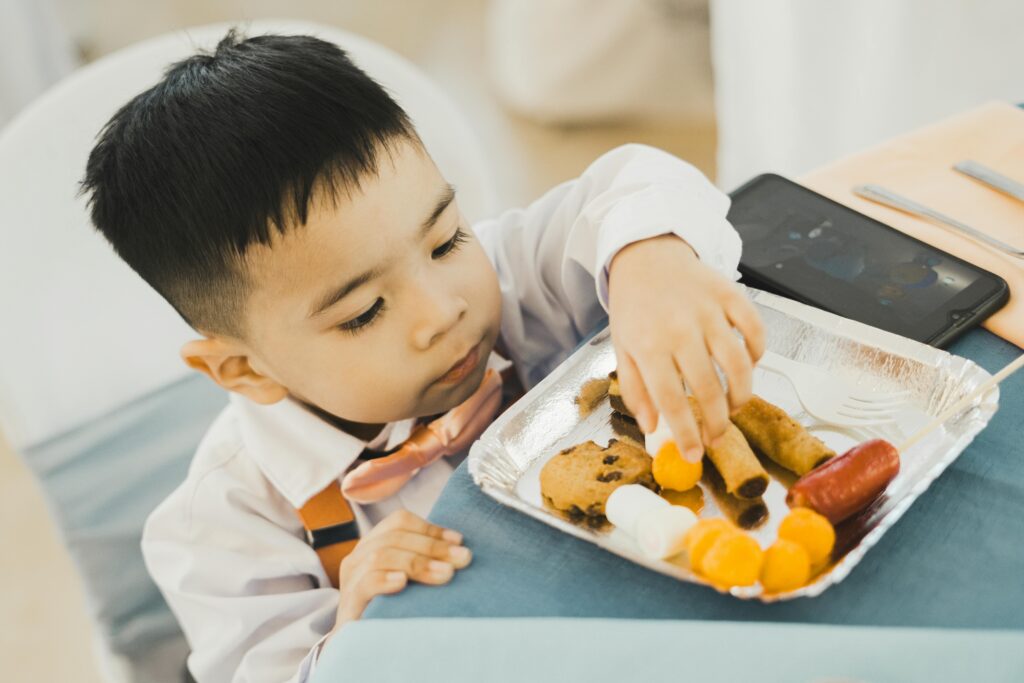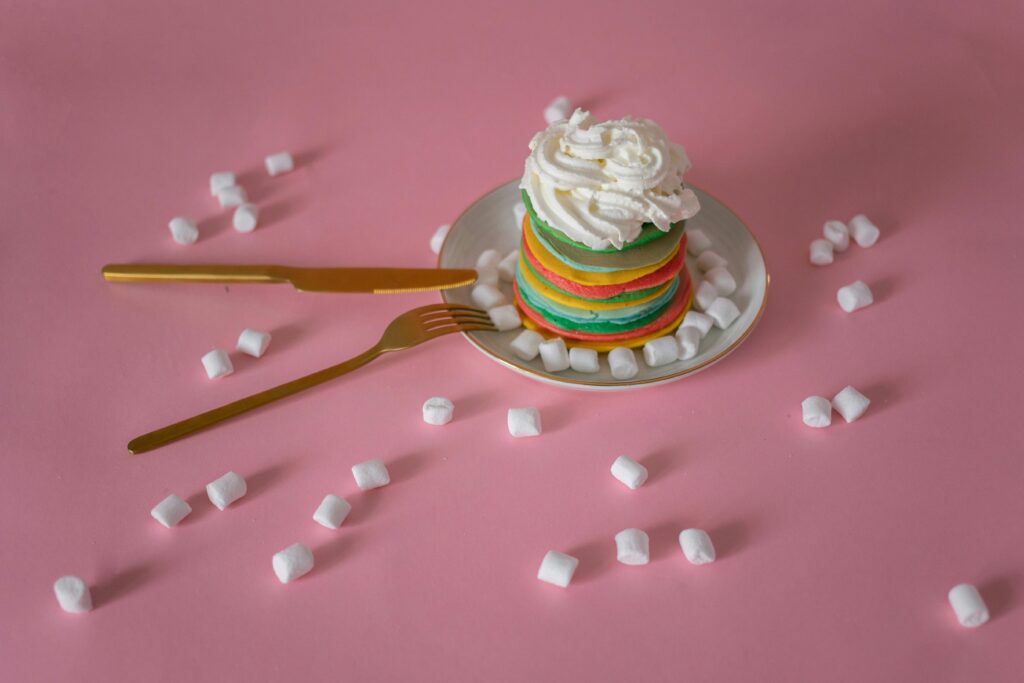Protecting the health and safety of toddlers is very important for parents and other caretakers. So, parents need to know about the foods toddlers should not eat. Choking is one of the biggest risks at mealtimes, which results in severe injury and even death.
The CDC notes that children aged 5 and under are especially at risk of choking because their mouths are not properly chewed and they are likely to stick things in their mouths.
The discussion below explains seven foods toddlers should not eat, explaining the risks they can face and providing safer choices. We will also look at general suggestions for promoting healthy eating habits and preventing choking accidents.
Reasons For Foods Toddlers Should Not Eat:
The most common reasons why you should avoid certain foods to give to your toddler are food poisoning, choking, and unhealthy eating habits. Choking is a common cause observed for injury and early death in children so parents should focus on the details of foods toddlers should not eat. Toddlers who are exposed to food-borne microorganisms may have dehydration and diarrhea. Some meals are bad for your toddler’s health.
When your child starts exploring foods, he or she will select foods and this may result in your toddler’s eating habits changing. This will affect their nutritional and general health. So if your child eats meals that are high in nutrients regularly, this can be beneficial to you. If the foods you’re giving aren’t so very healthy, they may harm your toddler’s health
With some nutrition knowledge parents have all the data about foods toddlers should not eat, one can prevent food poisoning, choking, and bad eating habits.
Unpasteurized Dairy Products
Choking Hazard: Toddlers with undeveloped immune systems are more at risk of food poisoning caused by the deadly bacteria in unpasteurized cow’s milk. Because the immunity system is developing it cannot fight with bacteria and protect the gut of a child.
Health Concerns: Dangerous diseases like salmonella or listeriosis can develop in toddlers by eating unpasteurized food. As unpasteurized foods contain harmful bacteria.
Safer Alternatives: Always use pasteurized dairy products like cheese or yogurt for complete protection, but parents should also provide their children with essential nutrients in their meals.
Mercury-Containing Foods Toddlers Should Not Eat
Children should not be given mercury-containing foods because they cause damage to the neurological function of the child. This is among the most common foods toddlers should not eat.
Choking Hazard:
- Fish Bones: If not removed properly, small bones found in many fish, can cause toddlers to choke.
- Large Pieces: Serving whole fish or huge fillets without chopping them up increases the risk of choking.
- Processed Fish Products: Foods like fish sticks may include additional ingredients or be cooked in different ways making them hard for young children to chew.
Health concerns
High concentrations of mercury found in fish, like swordfish, sharks, and king mackerel, can harm young children’s neurological development.
Safer Alternatives
- Low-Mercury Fish: Always select fish higher in omega-3 fatty acids like salmon, and lower in mercury.
- Remove Bones: Make sure that fish is cooked boneless and sliced into small manageable pieces that are no more than half an inch.
- Cook a lot: To make fish softer and easier for babies to chew, boil it thoroughly.
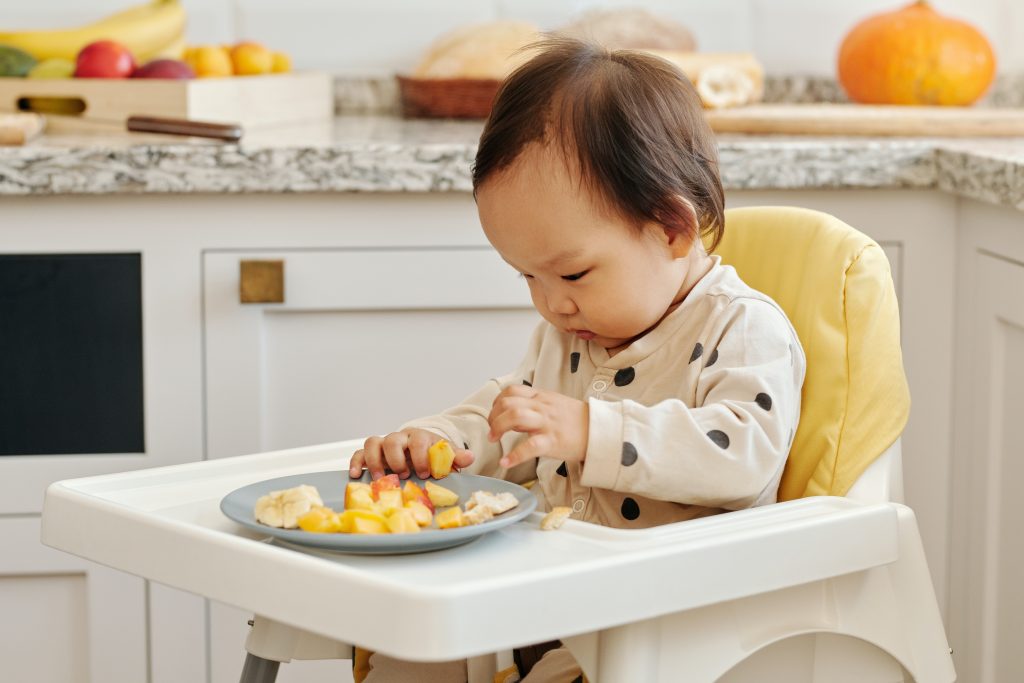
Raw vegetables
Choking Hazard: Due to the hardness uncooked vegetables including bell peppers, celery, and carrots are especially hard for little infants to chew. They try to eat it without chewing which may cause a risk of choking
Health Concerns: Vegetables are important for a well-nourished diet and young children like eating vegetables raw instead of properly cooked. This may increase gut work, which sometimes results in stomach pain.
Safer Alternatives: Serve soft cooked veggies or slice raw vegetables in small pieces carefully so they are tiny enough for small mouths. Soft steamed vegetables are safe for little ones to eat.
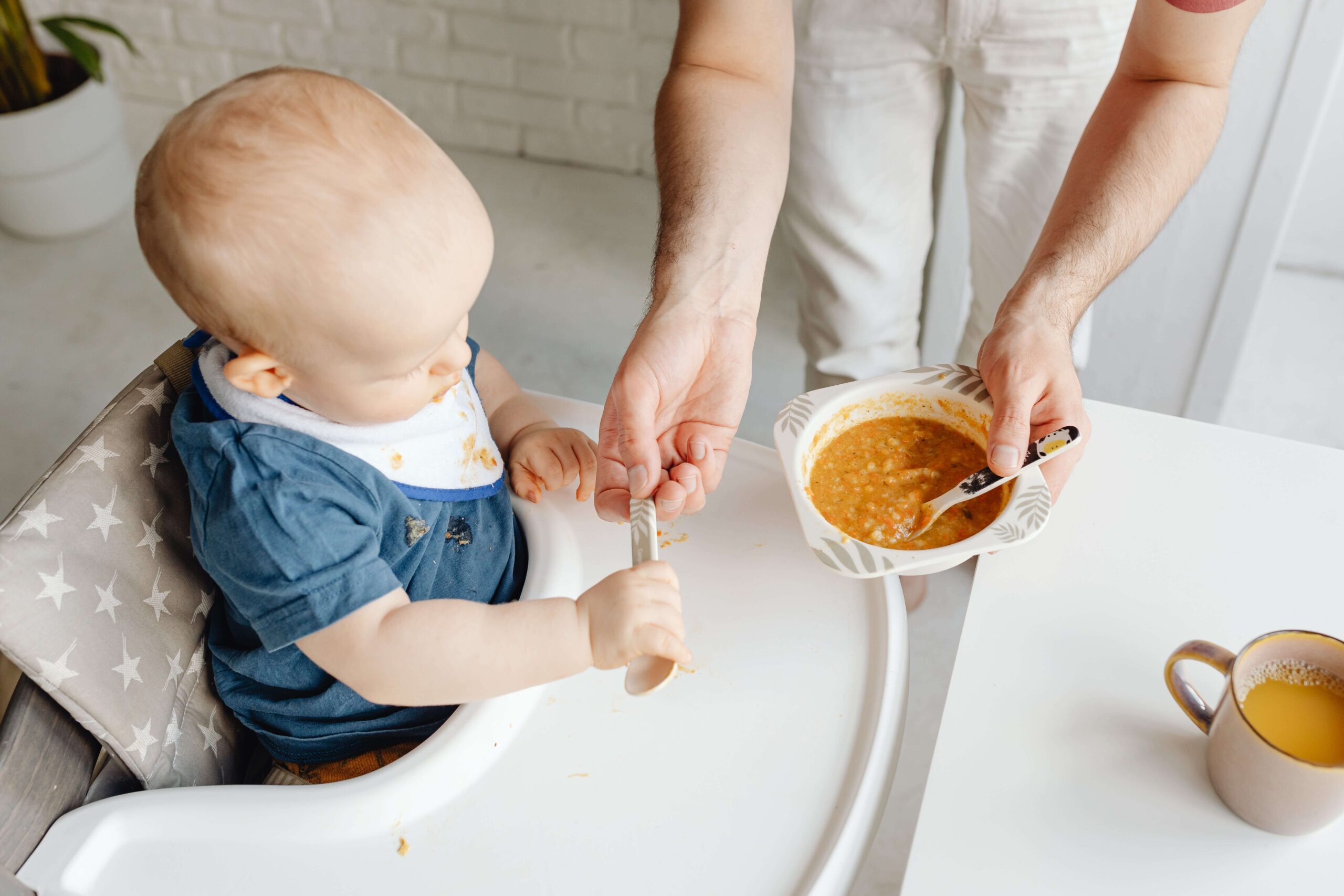
Caffeine-Containing Foods Toddlers Should Not Eat:
Choking Hazard: Foods that contain caffeine, like chocolate and other energy bars, might be choking hazards to little children. These meals are mostly hard to chew or swallow because they are small in size, dense, or hard.
Health Hazards: Adults get a short-term mental and physical boost from caffeine, but it can have negative effects on kids. Excessive caffeine use can cause:
- Elevated Heart Rate: Palpitations or irregular heartbeat are observed in kids by caffeine.
- Sleep Disorders: Caffeine suppresses sleep cycles which causes restlessness and difficulty in sleeping.
- Anxiety: Children who consume too much coffee may have anxiety symptoms that worsen with time and make them restless or anxious.
- Some children may have stomach distress after eating caffeine-containing products.
Safer Alternates: Children’s interaction with foods containing caffeine should be limited for their safety and well-being. Here are a few safer alternates:
- Fruity Snacks: Fresh fruits such as berries, bananas, and apples naturally sweeten your food without the side effects of caffeine.
- Peanut butter: When spread on whole-grain bread or crackers, peanut butter provides fat and protein without affecting the body.
- Herbal Teas: Older kids can feel good with herbal teas that do not contain caffeine.
If you’re looking to flavor with coffee or chocolate, you might consider decaf flavors that have the same flavor but not the same caffeine.
Cherry tomatoes and whole grapes
Choking Hazard: Whole grapes and cherry tomatoes are small and round, meaning a child can easily get them stuck in his throat. That results in choking which is harmful to toddlers’ health.
Health Risks: While these foods are loaded with nutrients, they have to be served with caution to be safe.
Safer Substitutes: Before giving grapes and cherry tomatoes to young children, always chop them in quarters. Allow your kid to eat these healthy fruits, as this little precaution will greatly reduce the chance of choking.
Cured and Smoked Meats
Choking Hazard: These meats are commonly presented in tiny, round bits or slices that can easily become stuck in a child’s throat. So this is also added to the foods toddlers should not eat when alone as it can result in choking.
Health Concerns: Too much salt for toddlers can cause them to dehydrate and cause kidney strain. These meats also have high sodium content and are not suitable for young children.
Safer Alternatives: Consider other options like shredded chicken, turkey, or lean cuts of beef that are cooked until tender so your toddler can safely eat meals high in protein. These choices are simple to chop into small, manageable pieces, which decreases the chance of choking but supplies vital nutrients.
Sugary Foods and Drinks
Sugary foods and drinks should be avoided by children and their parents because they cause much harm.
Choking Hazard: Tooth decay may occur from sugary meals and beverages, especially solid or sticky ones for little children. Foods like marshmallows or gummy candy, are very easy to get stuck in a child’s throat and can cause choking.
Health Risks: Many health problems can result due to the intake of sugary foods:
- Obesity and Weight Gain: Sugar-sweetened drinks are high in calories and low in nutritional value and result in weight gain.
- Dental problems: Sugary snacks are a well-known cause of tooth decay.
- Gut Health: If you consume too much sugar, this can hurt your gut microbiota and may even lead to inflammation and digestive problems.
Safer Alternatives: Consider these options to reduce the risks of sugary foods and beverages:
- Whole Fruits: Healthy fresh fruits have natural sweetness, vitamins, and fiber without the added sugars.
- Water or Herbal Teas: Encourage children to drink water or herbal teas without caffeine if they do not like sugary beverages. Staying hydrated doesn’t add extra calories with these sugar-free drinks.
- Homemade Snacks: Use ingredients to make snacks at home. For example, fresh fruits without added sugar can make homemade fruit smoothies.
- Reduce Consumption of Processed Foods: Packaged foods with added sugars are something not to select for toddlers.
Conclusion:
Some foods can cause serious health problems to children, so it’s important to make sure that toddlers are safe and healthy at mealtimes. Caretakers can reduce the risks of such health problems by eliminating foods toddlers should not eat. Such dangerous meals, like unpasteurized dairy products, raw vegetables, caffeine-filled snacks, whole grapes and cherry tomatoes, cured meats, and sugary foods must not be given to children.
Toddlers will be protected from potential hazards by choosing safer options, such as hard-boiled eggs, fresh fruits chopped into bite-sized pieces, lean meats, soft-cooked veggies, pasteurized dairy, and snacks, which will set them up for better eating practices for a healthy lifestyle. This article covers the all details about seven foods toddlers should not eat in all aspects.

